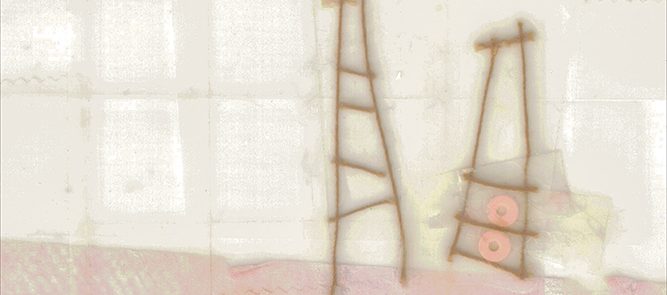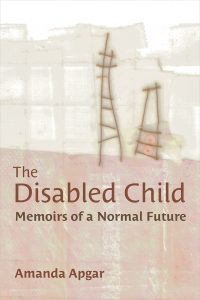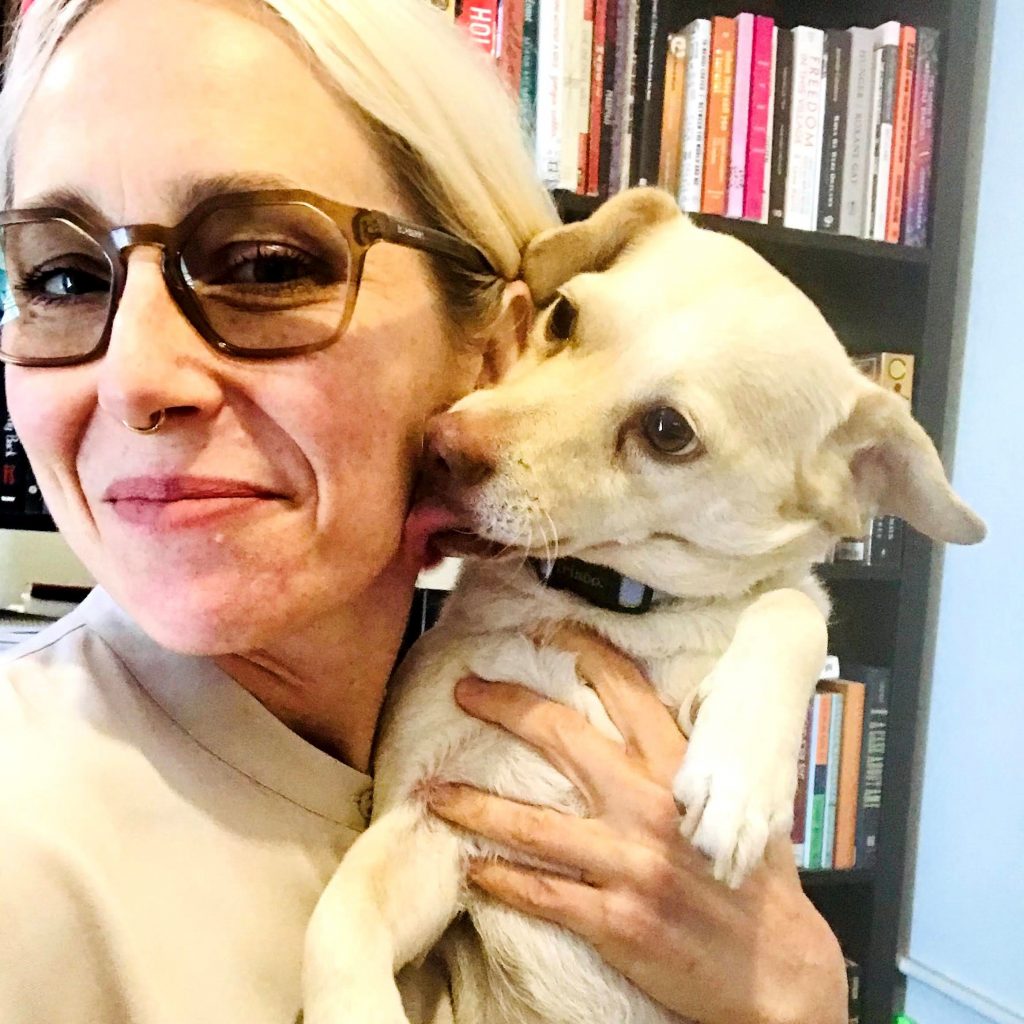
Emerging Ideas
The Disabled Child: Memoirs of a Normal Future
Join us for a book talk with Amanda Apgar, PhD about her new book The Disabled Child: Memoirs of a Normal Future on Wednesday, February 22, 2023, 4:00 PM – 6:00 PM PT. The event will have CART Captioning, ASL translation, and will be wheelchair accessible.

Register for in-person attendance
About the book: When children are born with disabilities or become disabled in childhood, parents often experience bewilderment: they find themselves unexpectedly in another world, without a roadmap, without community, and without narratives to make sense of their experiences. The Disabled Child: Memoirs of a Normal Future tracks the narratives that have emerged from the community of parent-memoirists who, since the 1980s, have written in resistance of their children’s exclusion from culture. Though the disabilities represented in the genre are diverse, the memoirs share a number of remarkable similarities; they are generally written by white, heterosexual, middle or upper-middle class, ablebodied parents, and they depict narratives in which the disabled child overcomes barriers to a normal childhood and adulthood. Apgar demonstrates that in the process of telling these stories, which recuperate their children as productive members of society, parental memoirists write their children into dominant cultural narratives about gender, race, and class. By reinforcing and buying into these norms, Apgar argues, “special needs” parental memoirs reinforce ableism at the same time that they’re writing against it.
Link to access book: https://www.press.umich.edu/12221256

Amanda Apgar is an assistant professor of Women’s and Gender Studies at Loyola Marymount University, where she also serves as acting director of the Health and Society Program.
Apgar received her doctorate in Gender Studies from University of California, Los Angeles, and a Bachelor of Arts degree from California State University, Long Beach, in Jewish and Middle Eastern Studies. Prior to her appointment at LMU, Amanda taught at UCLA and Pomona college. Recently and in collaboration with Loyola Law School’s Tony Coehlo Center for Disability Law and Policy, Amanda helped establish a disability justice think tank to address access, accommodations, disability related programing, and to act as a university wide resource on best practices and cutting edge research in disability culture, policy, and education. Currently, Amanda is collecting oral histories to inaugurate a digital archive of life lived with disability at LMU. Her first book, The Disabled Child, Memoirs of a Normal Future, was published in January of this year with University of Michigan Press as part of the Corporealities series on disability. Her work has appeared in Journal of Lesbian Studies and Journal of Narrative Theory, among others.
Feb 22, 2023
Faculty Center Morrison Room, 480 Charles E Young Dr E, Los Angeles, CA 90024
4:00 - 6:00 PM PST
Feb 22, 2023
Faculty Center Morrison Room, 480 Charles E Young Dr E, Los Angeles, CA 90024
4:00 - 6:00 PM PST